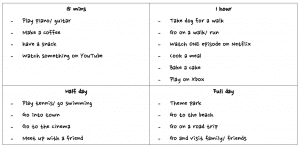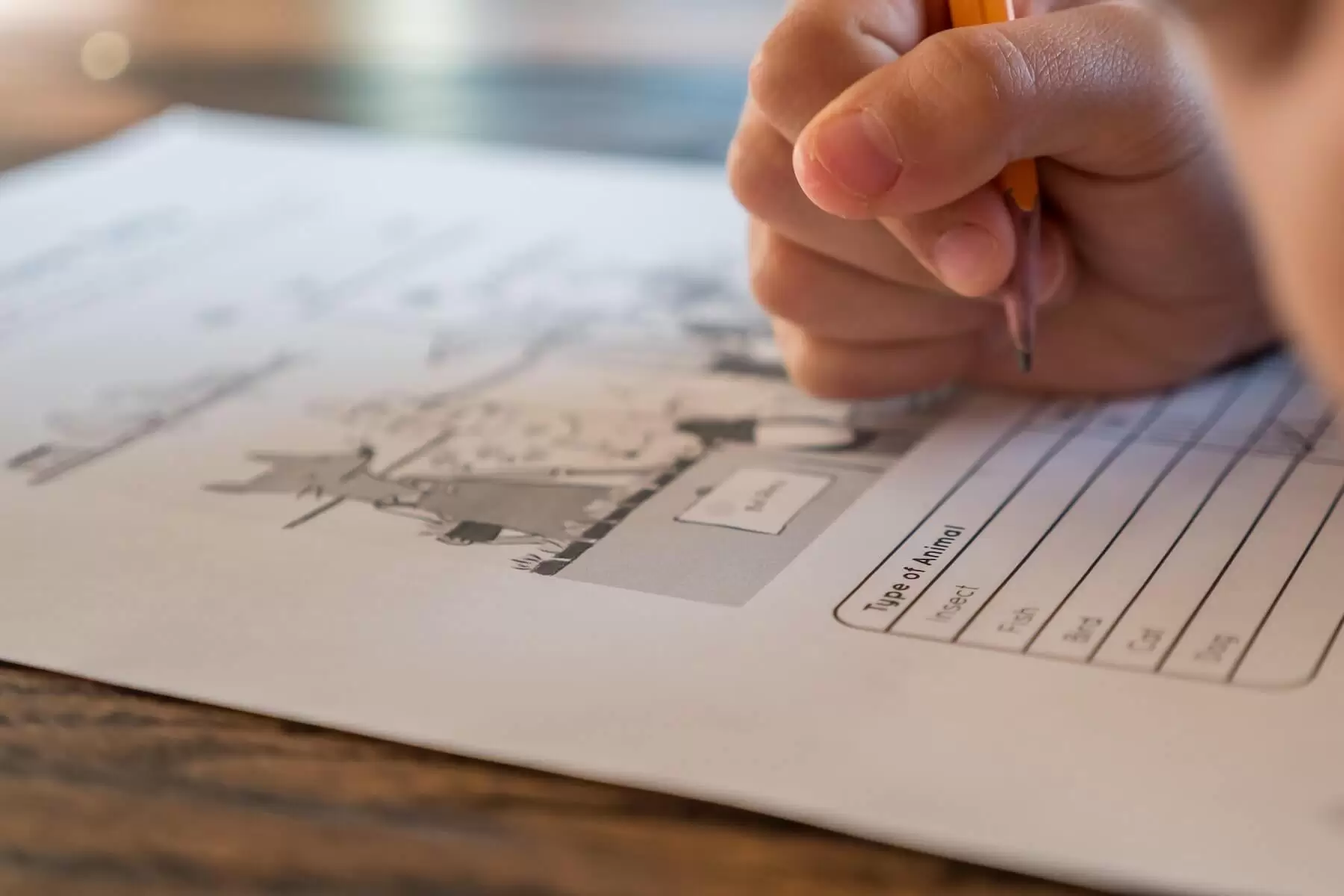Ahead of you lies a vast stretch of empty days, and it’s your responsibility to fill them. Planning your schedule from now until exams can be incredibly daunting. How many hours a day should I be studying? How many breaks should I be taking? Can I have days off? Getting to grips with these things will allow you to you feel confident and balanced, and prevent you from under-preparing or burning out.
Your goal is not to ‘burnout’
When you feel over-worked and stressed for a prolonged period of time, you may feel physically and emotionally drained. This is study burnout, and it’s the last thing you want just before your exams. Study burnout should not be interpreted as a positive sign of ‘working hard.’ A real sign of study success should be getting to the end of revision feeling healthy and energised. This is why it is so important to maintain a balanced, reasonable routine.
A top tip from me to you…
Make a list of things you enjoy doing. Things that take 15 mins, 1 hour, half a day, a full day. Whenever you feel tired, worn-down, exhausted – at risk of study burnout – resort to this list, and pick something from it.

How many hours a day should I actually be working?
If I was to sum up the ideal revision technique in one phrase, it would be “short and sharp.” Working in short, intense stretches is by far more efficient than forced study sessions that drag on for hours on end. There is no set amount of time you should be working every day. The time can be variable from day to day, depending on how productive you’re feeling. However, to give you some guidelines, I would say if you’re averaging 6 hours of studying each day, you’re absolutely on track. Perhaps you could aim for 3 hours in the morning, and 3 in the afternoon.
Psssst. Remember – don’t be put-off by those students who brag about working for 12 hours a day. No-one really revises solidly for that long, and even if they do, I can guarantee this is not effective.
Make a flexible daily timetable
As I said above, don’t force yourself to follow a rigid, stringent daily schedule. It’s inevitable that you will be more productive on some days than others, and that’s ok. Set guidelines, but don’t freak out if you’re a little off target every so often. There’s no formula for exactly when and what you should be studying in the IB. Find what works for you. Experiment – what time of day are you most productive? Aim to tackle your most difficult topics then. Are you a morning person? If so, make the most of the early hours of that day. If not, start and finish a little later.
Take a break
It is recommended that you take at least 10 minutes break every hour of studying. Again, there is no rule to work out how many breaks you should be taking. Every time you feel stressed or bored, take a break. You may need to remind yourself to break every now and then – perhaps set a timer!
Switch it up
Separate your relax and study environments. Having a reliable and consistent study area should not be underrated. It’s great to have somewhere comfortable and convenient that you can dependably go and study when you want. Ideally, this will not be your bedroom. Make sure you separate your study and relax environments. Sometimes however, after you’ve been working in the same place for weeks on end, it can start to feel stale and claustrophobic. If this happens, try switching up your study space. Try a local coffee shop with an internet connection and find a quiet spot, how about the public library? If you’re feeling isolated, go round a friends house for the day and study together.
Learn how to timetable your way to IB success here!




